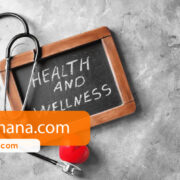While healthcare professionals rely on personal protective equipment to safeguard themselves and their patients, it is increasingly crucial that every other sector, such as professionals in offices, manufacturing firm staff, and students, also receives PPE.
According to the Institute for Work & Health, current Covid-19 outbreaks in Ontario contribute approximately 5% of all cases among the working population. More than 7,900 COVID-19 infections are due to workplace transmissions among workers from the beginning of the pandemic.
Personal protective equipment has become synonymous everywhere owing to the risks posed by the coronavirus pandemic. PPE supplies refer to specific items that a company provides to its employees to keep them safe while working.
Not providing appropriate PPEs for your staff can negatively affect operations in your organization as it infringes on employee’s rights, reduces productivity, and puts employees at risk. Some of the shortcomings of inadequate PPEs can impact your company.
Table of Contents
Employee rights
Every business is under obligation to safeguard and keep employees safe while working. While every industry is unique in its requirements, all employees deserve training in safety and health. Organizations should provide proper PPEs in line with the specific job description.
From challenges brought about by the COVID-19 pandemic, each employer should invest in high-quality equipment such as masks, safety goggles, gloves, and dust coats.
Every organization should ensure there are sufficient PPEs, and those in charge of distribution should ensure the availability of correct sizes for each employee. One-size fits all approach will disadvantage some and leave others without proper protective gear.
Management should conduct a survey and get specific sizes for each worker to simplify ordering and acquiring the PPEs. There should be a consistent procurement process, especially in industries dealing in healthcare and manufacturing, where there is a heightened threat to health and wellbeing.
Job satisfaction
When employees’ needs are taken care of, they are more likely to perform better and contribute to growing your business. Providing proper protective equipment is one way in which you can express respect for your staff.
When workers feel safe at work, it is unlikely that they will take time off to look for alternative employment. Your staff will dedicate their time to job efficiency, which will increase productivity and grow the business. High levels of absenteeism and staff turnover will, in the long run, impact your business negatively.
Legal regulations
Every business must comply with government or administration regulations on labor laws that stipulate precautions to safeguard employee welfare. By law, you must have liability insurance to protect your company should you be prosecuted for negligence.
If you are unfortunately found guilty of negligence in health and safety practices, you could be liable for massive compensation payments. When an employee injures themselves in line of duty or contracts the highly contagious COVID-19, it can negatively impact your business financially and healthily, leading to loss of lives.
Health and safety breaches could lead to challenges that may disqualify you or cost you your operating license.
Reduce or eliminate accidents and transmission of infections
Investing in proper PPEs can reduce transmission of COVID-19, which is deadly and highly contagious. The importance of sufficient PPEs should be emphasized, with each staff member wearing their masks at all times.
Social distance should be strictly adhered to with employees working in shifts to prevent congestion in the business premises. Working from home policies should be encouraged for those who can perform their duties from home.
Organizations must consistently conduct temperature checks, and anyone exhibiting symptoms of infection should be isolated and placed under observation by a healthcare worker. Additionally, there should be a restructuring of business premises to create room for handwashing outlets for clients, partners, or colleagues accessing the premises.
Recruitment
If your retention rate is shaky and staff turnover high, you will constantly recruit new employees. Employees will shun working for an organization with a bad reputation and opt to join organizations that take better care of their staff.
It won’t be easy to attract the most talented and qualified staff as they will prefer working in places with better working conditions. With these complications, your recruitment drives will be lengthy and more expensive and compromise the caliber of candidates that apply for vacancies.
Reputation
In business, image is everything. A disgruntled employee can spread negativity putting your brand in a bad light and attract backlash from consumers. Social media is a tool for publicity, and when used in the negative, it can propagate backlash and criticism from the public. It takes years and a lot of effort to build a reputation, but only a single post to go viral on social media to bring your organization down.
Finally, employees are not always aware of the importance of certain types of PPEs. Therefore, carrying out frequent training to create awareness is essential to improve collaboration and safety between employee and employer.









Comments